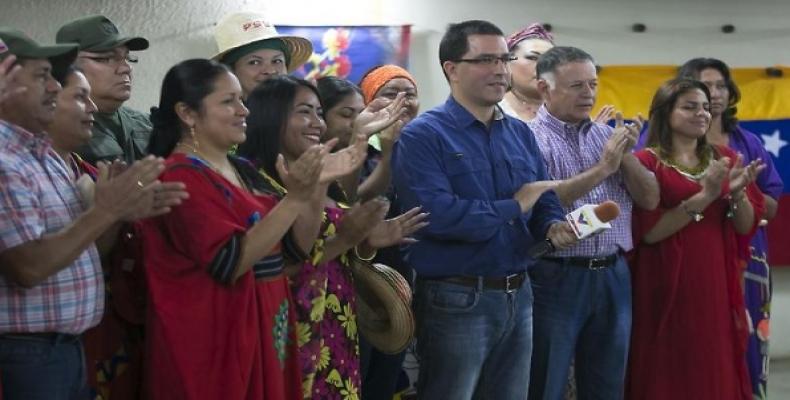Caracas, October 5 (teleSUR-RHC)-- Venezuelan Vice President Jorge Arreaza held a meeting with the indigenous Wayuu and Añu communities aimed at strengthening and improving government's policies and operations on its border with Colombia.
Venezuela closed several border crossings and declared a state of exception in select areas in August and thereafter, following suspected paramilitaries attacked on a military patrol, critically injuring three Venezuelan soldiers.
"We must recognize that the Wayuu have had to make some sacrifices with the state of exception and the measures placed (to stop) the smuggling of fuel and food, but the community is aware that sacrifices are worth it,” said Arreaza.
The Venezuelan vice president said that in order to improve the situation at the border, it was necessary to listen to the requests of the people living in the region, in particular the spokespeople from the indigenous communities.
“We are designing the new codes of the border and when they decide sometime in the coming months to reopen border crossings, will have a different control system and will be able together to build this new frontier which President (Nicolas) Maduro has called us to do."
The closure of the border also served to reveal the prominent role played by smuggled goods in generating informal employment in Colombia's economy but also the negative effects the smuggling of goods and fuel has on the Venezuelan economy.
Arreaza said that the closure of the border has saved Venezuela $140 million and the money would be invested in hospitals, roads, supermarkets, and other public projects in the border region.
Arias added that some 50,000 Colombians in the state of Zulia alone had joined the Movement for Peace, a bi-national effort led by President Maduro to build peace between Venezuela and Colombia.


